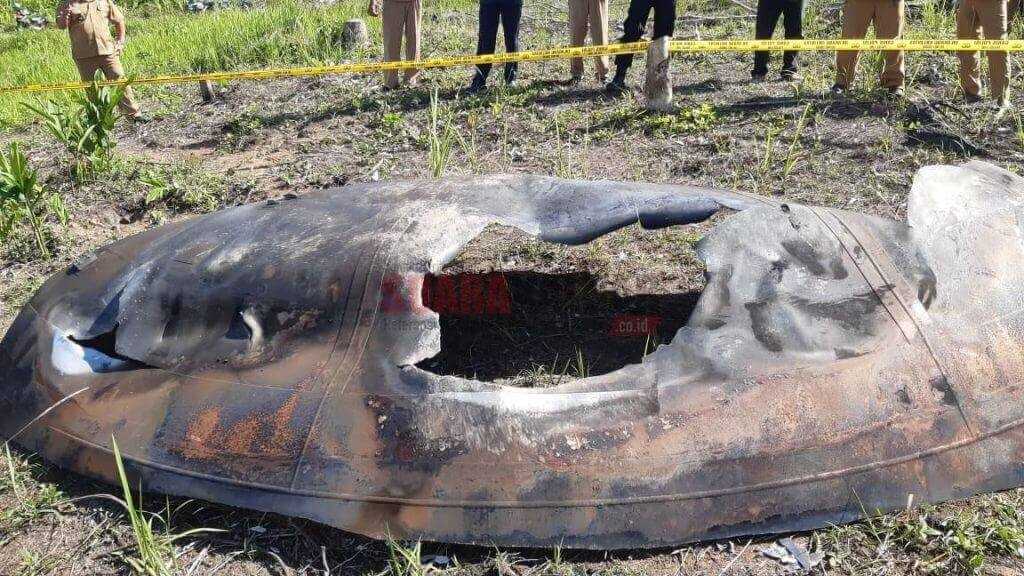Much ado about rocket debris

Image: SuaraKalbar
As you may remember from Monday’s edition, a Chinese rocket made an uncontrolled descent back to Earth over the weekend, falling harmlessly in the Indian Ocean. But now parts are reportedly being found on the ground in Southeast Asia – some big enough to cause serious damage or injury had they landed in villages around a thousand feet away.
🚀💥 More deets… China launched the offending Long March 5B rocket on July 24, sending it on a mission to deliver a construction module to the country’s Tiangong space station.
The unique thing about Long March 5B rockets when compared to something like SpaceX’s Falcon or Falcon Heavy? Its disposal strategy – namely, cross your fingers and pray. Each time they’re launched, the rocket’s core stage falls into an uncontrolled and hard-to-predict crash from orbit.
- May 2020: China’s first-ever mission using the rocket ended with debris raining down on West Africa.
- April 2021: The rocket’s second mission culminated with remnants falling into the Indian Ocean.
- July 2022: Go-round #3 resulted in an estimated 20%–40% of the rocket’s weight surviving re-entry, falling as previously mentioned. NASA released a statement after-the-fact criticizing Beijing for not sharing trajectory data.
📝 Bottom line: A recently published peer-reviewed study found there’s a 6-10% chance that a falling piece of rocket debris will kill someone in the world over the next decade. So probably not something to individually worry about atm… but still.
Share this!
Recent Science & Emerging Tech stories

Science & Emerging Tech
| August 2, 2022Autism: caused by gut bacteria?
🧪 Some of the most common symptoms of autism spectrum disorder (ASD) may be linked to the biological makeup of the gut, according to a new study published in the peer-reviewed journal Neuroscience.

Science & Emerging Tech
| August 1, 2022Little Miss Lives in a Moon Cave
🌕 The moon has hundreds of pits and caves where temperatures stay at roughly 63° F, making human habitation a possibility, per newly published research from NASA-funded scientists at UCLA.

Science & Emerging Tech
| July 28, 2022HIV scientists rn
🧪🥼 A 66-year-old man from Los Angeles appears to be the fourth person ever officially cured of HIV, per new peer-reviewed research first made public yesterday
You've made it this far...
Let's make our relationship official, no 💍 or elaborate proposal required. Learn and stay entertained, for free.👇
All of our news is 100% free and you can unsubscribe anytime; the quiz takes ~10 seconds to complete